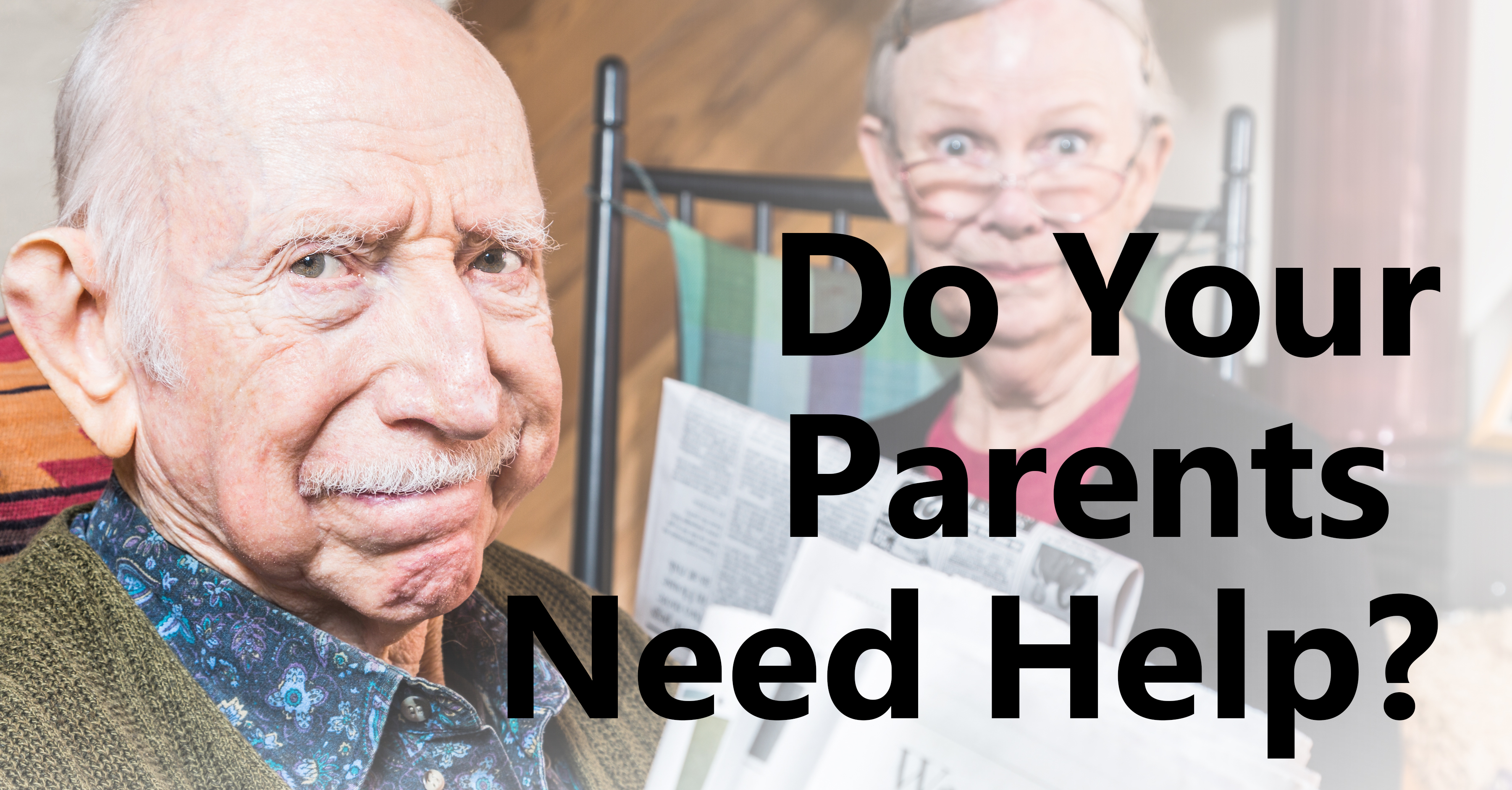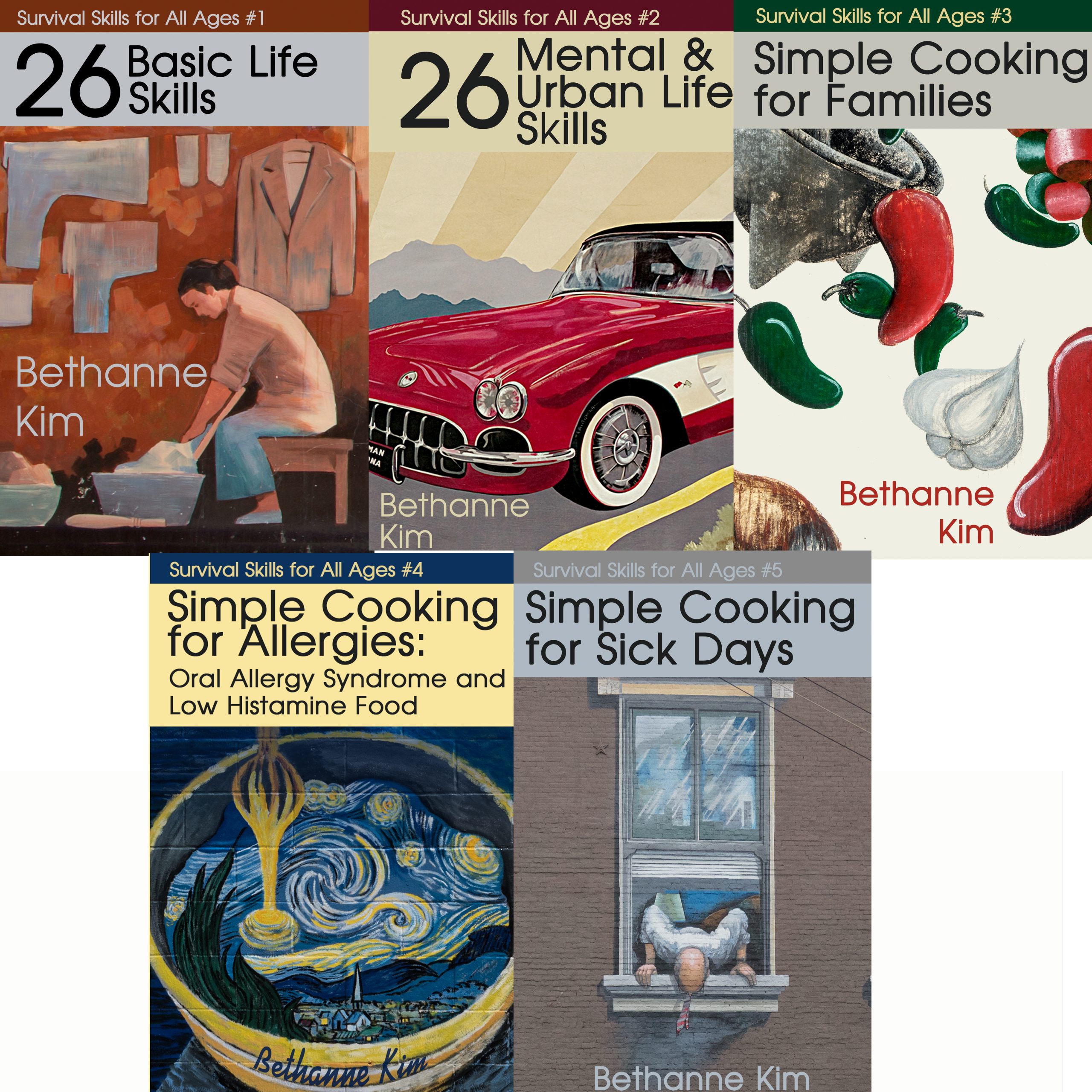
Do Your Parents Need Help?
It’s a tough subject and one we all struggle with, but unless your parents die young, at some point they will need your help with day-to-day tasks. You probably won’t want to admit it when it first happens, and they almost certainly won’t, but waiting just makes it worse.
Age is clearly a factor, but it’s far from the only one. Lifestyle, genetics, personality, climate, and health are all considerations. For example, it is harder to maintain a single family home than a townhouse, and harder to maintain that than an apartment. The less they are personally responsible for, and the less manual labor needed to maintain those items, they longer they can stay on their own.
Personality matters too. My mom became a certified aerobics instructor in her 60’s and my dad practically has to be nailed down to prevent him from working outside. They keep physically and mentally active, and they are still living in their single family home as they near eighty.
Things to Watch For
Home
There are warning signs that your parents may be no longer be able to maintain the life/lifestyle they are used to. They aren’t about income, they are about physical and mental ability. If things aren’t well kept up in their home, or areas they used to use are clearly no longer in use, those are both signs that they may not be up to staying in a single family home. The upstairs and basement both require traversing stairs, so these are among the first areas to be “abandoned” by the infirm and elderly. This can be problematic because it makes it so easy for problems like water leaks, critter infestations, and mold to go unnoticed for months or even years, creating ever-greater health hazards and home damage. If they are generally healthy but need to go up or downstairs regularly, it is worth looking into a motorized chair for the steps. One elderly lady I knew had her only full bathroom upstairs. Putting in a motorized stair lift allowed her to stay in her home for several extra years.
By the time I visited my mother in law’s two story home, it had been years since she physically went upstairs on a regular basis. It was simply too difficult to use that many steps, even with a handrail. Since she had a full bath and bedroom on the first floor, it was easy for her to just stop going up there. Her beloved garden was likewise neglected because kneeling down to weed and care for plants was also too hard.
A single family home was no longer appropriate; it was time to move to a senior apartment. As much as she resisted, she loved it once she settled in.
The Case For Staying in their Home
With all that said, keeping them in their own home as long as it is safe and practical should be the goal for a few reasons. First and foremost, it’s almost certainly where they want to be. Staying there keeps them tied to their routines, their friends, and their past. All these are important to any person.
Second, assisted living and nursing care are crazy expensive. If making spending two or three thousand dollars on upgrades to their home so they can stay there, spend five minutes researching costs on assisted living and nursing homes. It is easily $5,000 per month, and that isn’t even for a high-end place.
Third, as much as no one wants to think about it, the elderly are easy prey, and even more so when they are put in a strange place with minimal privacy. Now that she is in assisted living with no responsibilities, my mother in law is happier than she has been since FDRs first term. No joke. It’s a great place and one of the few designed for fixed-income residents. (The wait list is over a year long.) The staff checks on them regularly. That is good for safety, but the cold hard reality of it is that it means people come into her room while she is sleeping (nursing staff), when she is at lunch (cleaning), and pretty much any time they want to. Are they abusing this or her? No, they aren’t – but they could be.
Personal Hygiene
Increasingly bad hygiene is another warning sign. They may not be able to bath, or may be fearful due to an accident, have incontinence issues, or be unable to do laundry unaided. There are ways to help them with all of these problems, including hiring people to come in, but it will reach a point that they either need full-time live in nursing care (something few of us can afford) or to move to assisted living, and then to nursing care.
Depending on their overall health, installing a stand-alone shower, preferably with handrails and space for a shower chair, may be the best option. As with a stair lift, this can allow them to remain in their home longer. And that’s a good thing.
No one likes wearing diapers, no matter what you call them. Adults even less than little kids. It is almost certain they will resist wearing them. One important change you can make is to put a waterproof bed cover on their bed. Mattresses can be put inside “encasing” covers, which makes them harder to put on, and take off. If you use a cover that is easily taken off, chances are good they will take it off and not put it back on. This is important because a lot of adults have “accidents” when they are sleeping or when they first sit up in the morning, which means their bed is the first place that will start smelling like pee. A mattress cover at least keeps that out of the actual mattress.
Mental Changes
Depression and mental changes such as significant, ongoing, or worsening memory issues are clear danger signs. If and when they start to forget things, be alert for it reaching a danger point.
Doctors are human and their own biases may impact the care your loved one is receiving. One geriatric doc refused to take my mother in law’s early mental lapses (forgetting words) seriously because she is an immigrant. In his city, people self-segregate based on where they or their ancestors came from, so they often speak primarily in another language, not English. Therefore, forgetting a simple word in a language she has used every day for decades – the only language anyone she was around spoke – seemed like no big deal to him because he simply couldn’t grasp that English truly was her primary language. His biases delayed her getting treatment for mini strokes by at least a year.
If your loved one is seeing a doctor who doesn’t seem to be taking their condition seriously, it’s time to look for a new doctor. (If you have gotten a second opinion and they are in agreement, it may be time to take a step back to consider if it’s really as bad as you think, which it may be.)
Things to Do
Recognize when your parents might need help and ways you can assist, up to and including moving them into senior housing, assisted living, or a nursing home, but definitely not starting there.
- Talk with them, and really listen.
- Talk with their doctors, if possible, especially for mental and physical ailments.
- If their doctor is blowing off concerns from any of you, change doctors, but explain why to your parents. They may have been using this doc for a long time and trust them a lot. If that is the case, seeking “a second opinion” is probably the best route.
- Start planning for the future and moving them to senior housing; the best places have waiting lists that easily reach a year or longer. The longer they have to mentally prepare and to prepare their belongings (getting rid of things, boxing them up, etc.), the better.
The most important thing is to be there for them. Pay attention. Have them visit you and go visit them, if they live close to you. If they don’t, talk on the phone regularly. When you visit, fix things on their house. If they feel a need to do it themselves but they are no longer able to do it safely, couch it as them teaching you a new skill, or even as teaching their grandchild a new skill. If none of you can do it or you live too far away to do it, arrange for a professional to come in. Patching/replacing a roof is a prime example of a time to hire a pro.
Remember, the way you treat your parents and in-laws teaches your kids how to treat you when you are old. Think about how you would like to be treated when you are doing things with/for them.
